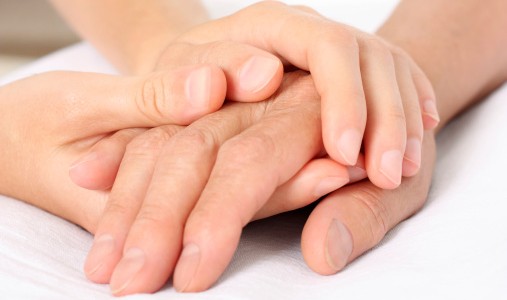“To be able to say ‘Hey, I’ve been there’ is invaluable to my clients”
The new CMHA Peer Navigator Program, funded by and operated in partnership with VCH, launches to help mental health and addiction clients navigate the health care system.
Jamie has suffered from depression since high school, a condition worsened by life events such as job loss, divorce, the passing of three beloved grandparents one after the other and his dad’s diagnosis of Parkinson’s and cancer
At his lowest, Jamie faced a breakdown and was hospitalized, but that wasn’t the end for him.
His recovery journey started with a connection to a mental health team after his hospital discharge and continued with the major turning point of joining a local mental health club house where he connected with others.
“It was there that I realized I wasn’t alone and didn’t have to suffer alone. The place offered a tremendous sense of community where I felt like I could be my true self.”
Along with the right meds and a great psychiatrist, he started to recover and thrive. Jamie taught a computer skills course and volunteered with a young adult group, which led to a position on the club house’s leadership team.
He went on from there to take peer support training, recovery support training and did a peer support practicum before being hired for a role in the new Peer Navigator Program (Jamie’s also completed a degree in Molecular Biology and Psychology).
“Being a Peer Navigator means taking someone that is unsure of the system and themselves and helping them discover what they can do in their lives.”
He adds, “It’s being able to guide someone through the system to treatment and then on to recovery – helping them get to the other side of this system by leading through example. We are proof to our clients that they, too, can make it through. From the very bottom to a great job, friends and a place in community, I can take that and show others that it’s a possibility for them as well – that recovery can be a reality.”
Christine, a Peer Navigator and colleague of Jamie’s echoes his thoughts.
“As Peer Navigators, we don’t have all the answers – each person has their own story and their own journey to travel – but what we can offer them is hope.”
Christine has her own story to tell. From an early age, she was diagnosed with dyslexia, accompanied by anxiety and ADHD. Her mom also struggled with a mental health challenge, so Christine became acquainted with the mental health system early on in her life. She was 19 when depression first hit after her parents’ divorce. She then experienced debilitating depression after she connected with her birth father and he passed away shortly thereafter. Things continued to spiral for Christine to the point where she knew she had to do something about it.
She saw a flyer for a CMHA program and joined it. The program helped so much that Christine went back to school where she finished her diploma and then degree in Community Rehabilitation and Disabilities Studies.
Because of her lived experience and knowledge of the mental health care system, Christine became an unofficial source of knowledge for people and co-workers at the retail job she worked while going to school.
“They would ask me questions and I found I had some of the answers or knew where to go to find out.”
Christine was also hired with a CMHA program where she had the role of leisure and volunteer access coach. While facilitating a course around stigma and mental health, she realized the only way to end self-stigma is to say ‘This is who I am’.
Christine’s final project for her degree was on peer supports and how this approach is helpful to the navigation of the health care system. So, when the opportunity came up to work as a Peer Navigator, she saw it as a chance for her to blend her professional degree and clinical knowledge with her personal experiences into a comprehensive understanding of how to help people going through where she had been.
“It’s about being able to empathize with our clients – to say, ‘hey I’ve been there and I get it. I know the feeling of not being well and not knowing what to do.’ Once I make that connection with them, they know and trust that I’m going to support them.”
Christine adds, “The biggest thing we can do for our clients is work alongside them, not do it for them. Each person has their own journey to take, however, if we can help guide them through, that’s what it’s about.”
The new Peer Navigator Program is a client-centred and recovery-oriented service that works to improve the quality of life and progress in recovery of clients.
Look for the official program launch announcement within the coming week. In the meantime, check out this past VCH News story about the program.

